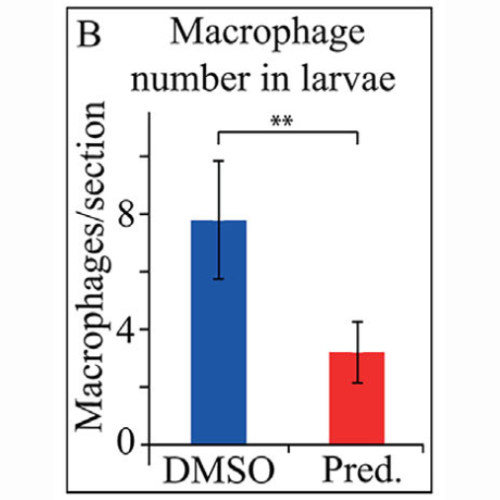Immune Suppressive and Bone Inhibitory Effects of Prednisolone in Growing and Regenerating Zebrafish Tissues.
Glucocorticoids are widely used as therapeutic agents to treat immune-mediated diseases in humans because of their anti-inflammatory and immunosuppressive effects. However, glucocorticoids have various adverse effects, in particular rapid and pronounced bone loss associated with fractures in glucocorticoid-induced osteoporosis, a common form of secondary osteoporosis. In zebrafish, which are increasingly used to study processes of bone regeneration and disease, glucocorticoids show detrimental effects on bone tissue; however, the underlying cellular mechanisms are incompletely understood. Here, we show that treatment with the glucocorticoid prednisolone impacts on the number, activity and differentiation of osteoblasts, osteoclasts, and immune cells during ontogenetic growth, homeostasis, and regeneration of zebrafish bone. Macrophage numbers are reduced in both larval and adult tissues, correlating with decreased generation of myelomonocytes and enhanced apoptosis of these cells. In contrast, osteoblasts fail to proliferate, show decreased activity, and undergo incomplete differentiation. In addition, prednisolone treatment mitigates the number and recruitment of osteoclasts to sites of bone regeneration in adult fish. In combination, these effects delay bone growth and impair bone regeneration. Our study demonstrates the many-faceted effects of glucocorticoids in non-mammalian vertebrates and helps to further establish the zebrafish as a model to study glucocorticoid-induced osteoporosis.

- J Bone Miner Res. 2017 Dec;32(12):2476-2488
- 2017
- Medical Biology
- 28771888
- PubMed
Enabled by:
